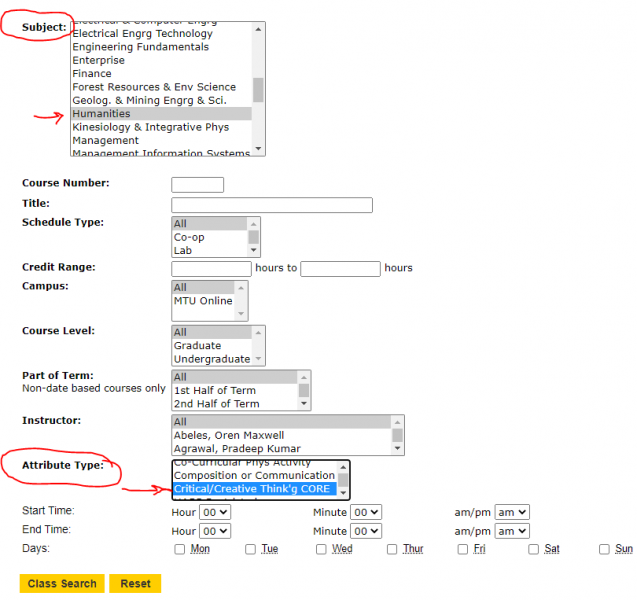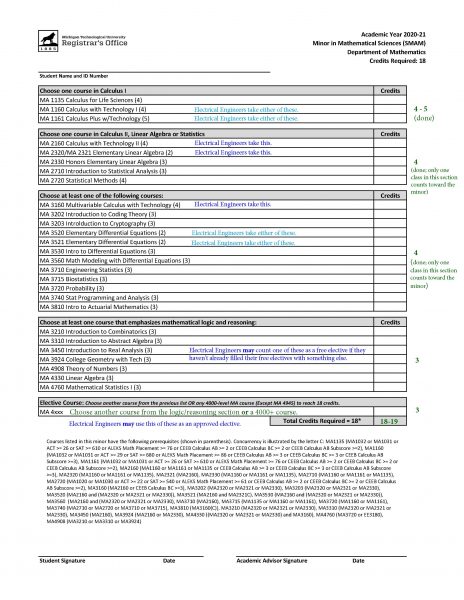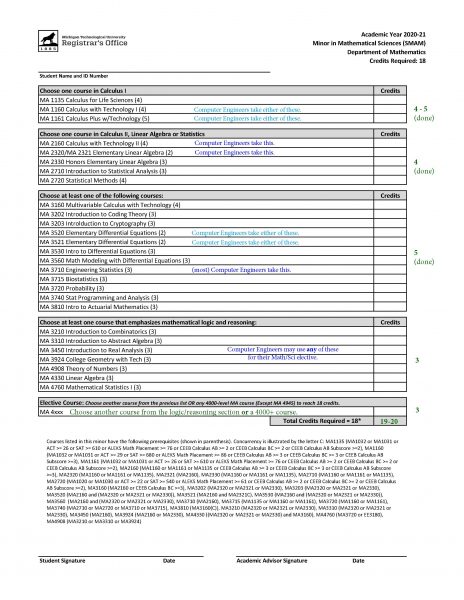If you are taking a summer course elsewhere, that is a prerequisite to a course you need to register in fall:
1. Send an email notice to transfer@mtu.edu (Transfer Services Office) and let them know your name, M#, the course and the college. Include a screen-shot of your registration page showing the College Name, and that you’re registered in that course.
2. After that, a temporary “IN SESSION (IS)” record will be added so that you can then register in the fall class(es).
3. Be sure to have your other college send an official copy of your transcript as soon as the class has ended. (otherwise the fall classes will be dropped)
A grade of “C” or higher is required to transfer a course to Michigan Tech.


